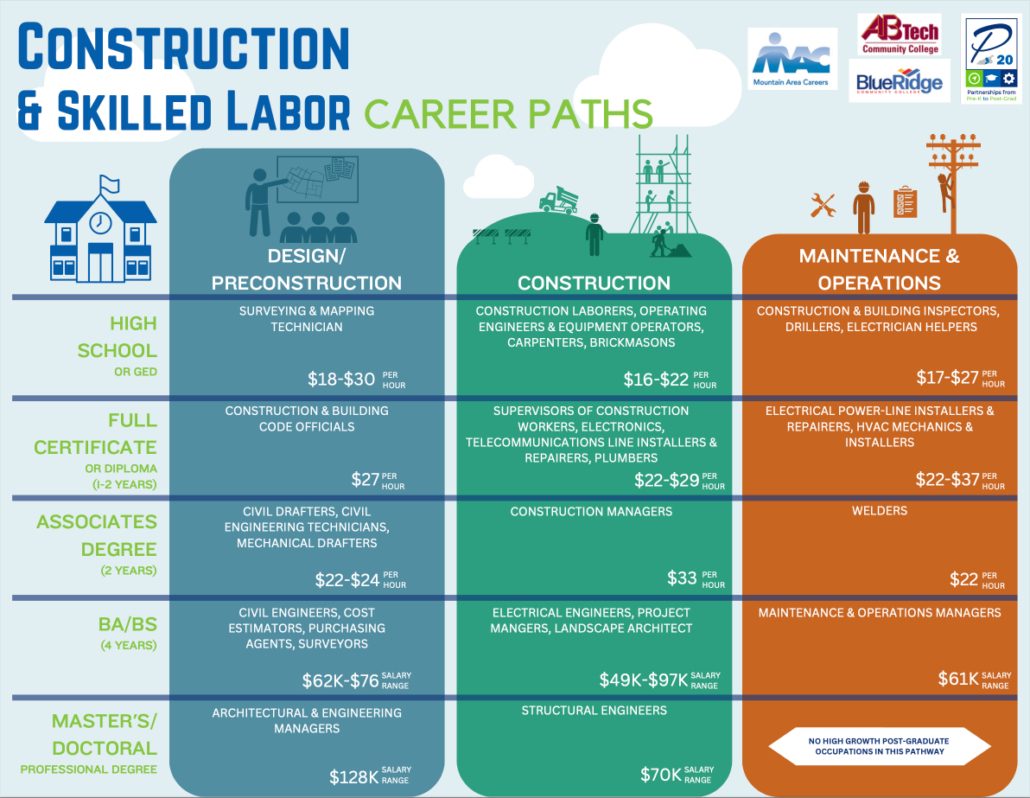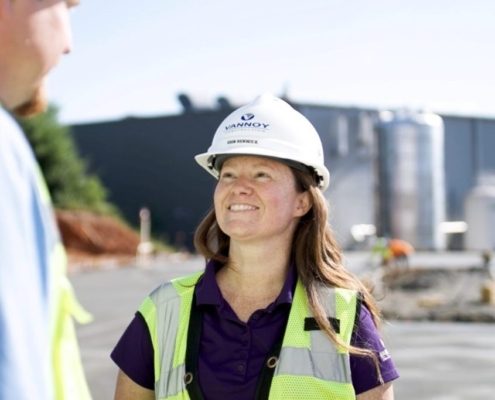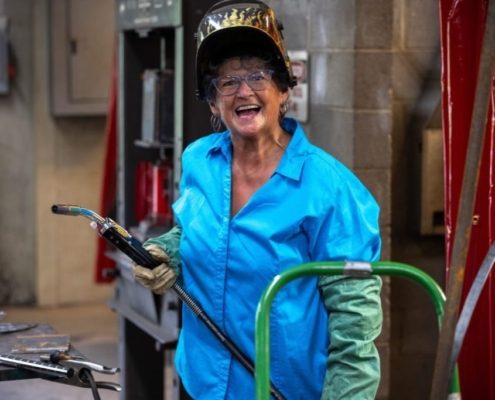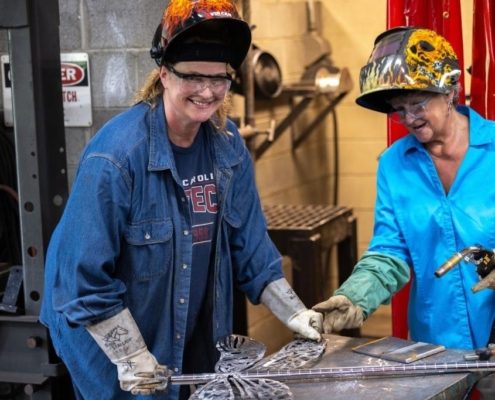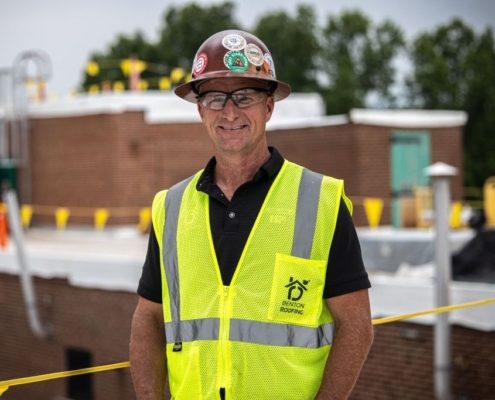If you enjoy working with your hands and building things, a career in construction and skilled trades might be for you. In Buncombe, Henderson, Madison and Transylvania Counties, there are estimated to be around 11,467 jobs in the construction and skilled trades industry with an average annual wage of $44,203.18.
Average earnings per construction and skilled trades jobs in the Local Area, from ESMI data.
Estimated number of construction / skilled-trades jobs in Buncombe, Henderson, Madison and Transylvania Counties
Skilled trades include specialized areas such as plumbing, electrical work, solar installation, HVAC, carpentry, masonry, welding, and more. These trades require specialized knowledge and skills, and can lead to rewarding and lucrative careers in the industry.
Entry-level jobs in construction and skilled trades typically involve assisting more experienced workers with tasks such as carrying materials, using hand and power tools, and cleaning up job sites. As you gain experience and skills, you can move up the career ladder and take on more responsibilities.
One way to advance your skills and career in construction and skilled trades is to obtain certifications or additional training. Many employers in the industry will help you obtain the necessary certifications and training to advance your career.
With the region’s growing population and booming economy, there is a high demand for skilled workers in construction and skilled trades. Some of the main areas of growth in the industry include residential and commercial construction, remodeling and renovation, and infrastructure development.
Whether you are interested in working for a large construction company or pursuing a career in the skilled trades, there are many opportunities for a fulfilling and lucrative career in construction and skilled trades in Buncombe, Henderson, Madison and Transylvania Counties.
- Our region is growing and we need craft professionals to help build our communities, housing, commercial and industrial construction
- Through industry-recognized credentials and certifications, craft professionals earn competitive wages with minimal to no debt.
- 74.3% of local construction firms expect to grow their workforce in the next five years.
- The most job openings are projected to be for Commercial Construction Field Supervisors, Electricians, Estimators, Commercial Construction Project Managers and Supervisors and Managers.

